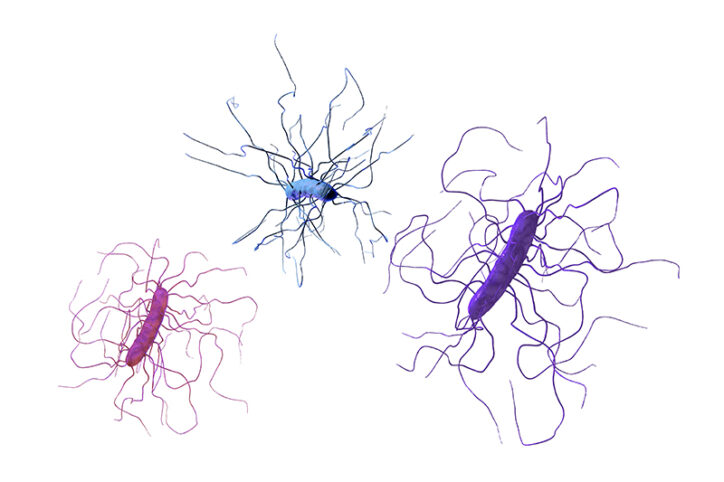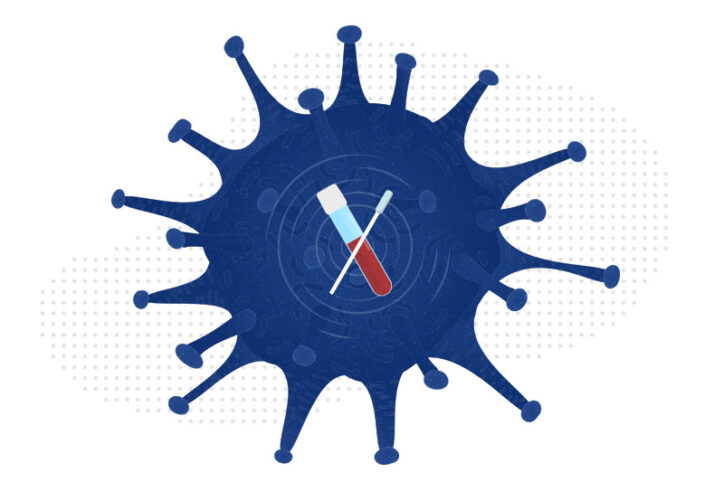Archive for infectious diseases
Could a GI bug’s toxin curb hard-to-treat breast cancer?
Clostridium difficile can cause devastating inflammatory gastrointestinal infections, with much of the damage inflicted by a toxin the bug produces. But research from Boston Children’s Hospital suggests that the same toxin could also be a useful tool for curbing highly aggressive triple-negative breast cancers that don’t respond to chemotherapy. Min Dong, PhD, in the Department ... Read More about Could a GI bug’s toxin curb hard-to-treat breast cancer?
Tagged: cancer, infectious diseases, toxins
A new approach to C. diff? Targeting the inflammation, not the bacteria
Clostridium difficile (C. diff) intestinal infections can cause severe, debilitating diarrhea in patients who are hospitalized or on immunosuppressive therapies. The infections can be very hard to eradicate, roaring back when patients try to taper their antibiotics. Many people wind up on antibiotics for months and can become resistant to three or more of them. ... Read More about A new approach to C. diff? Targeting the inflammation, not the bacteria
Tagged: gastroenterology, infectious diseases, toxins, urology
Nanobodies from alpacas could steer immune attacks on influenza
While conventional flu vaccines are designed to anticipate the influenza strains projected to dominate in the next flu season, they’re only partially effective. And while antiviral drugs are available to treat active flu cases, the body quickly clears them, requiring high, frequent doses. Coupling one existing flu drug with a special ingredient from alpacas, the ... Read More about Nanobodies from alpacas could steer immune attacks on influenza
Tagged: drug development, flu, immunotherapy, infectious diseases, vaccines
Zika study reveals how infection can cause microcephaly
Prenatal exposure to viruses capable of infecting the fetal brain, particularly in the first trimester, can cause a range of developmental defects in the baby. The Zika epidemic in Brazil during 2015-2016 posed an extreme case, causing hundreds of babies to be born with microcephaly, or an abnormally small head. Although cases have waned significantly, ... Read More about Zika study reveals how infection can cause microcephaly
Immune biomarkers predicted COVID-19 severity and could help in future pandemics
Why did some people fall critically ill from COVID-19 and others not? In May 2020, as COVID-19 swept the world, Boston Children’s Hospital helped launch a national, NIAID-funded study called IMPACC (IMmunoPhenotyping Assessment in a COVID-19 Cohort). Taking a “systems immunology” approach, the goal was to document the virus’s impact on the immune system in ... Read More about Immune biomarkers predicted COVID-19 severity and could help in future pandemics
Advancing mother-child health globally: Grace Chan MD, MPH, PhD
First in an ongoing series profiling researchers at Boston Children’s Hospital. Globally, five million children die annually before the age of 5. Forty percent of these deaths are in the first month — and many are preventable. Grace Chan, MD, MPH, PhD, finds these numbers unacceptable. They contrast starkly with U.S. medicine, including at Boston ... Read More about Advancing mother-child health globally: Grace Chan MD, MPH, PhD
What every family should know about RSV
To help keep your family safe and informed about respiratory syncytial virus (RSV), we spoke to Dr. Kathleen Conroy, Clinical Chief for Children’s Hospital Primary Care Center (CHPCC). What is RSV and what are the symptoms? RSV is a virus that causes upper and lower respiratory tract infections, most commonly in children and infants; however, ... Read More about What every family should know about RSV
Tagged: fever, immunology, infectious diseases, pneumonia
Tim Springer: Scientist, entrepreneur, and mentor
As an undergraduate in 1966, immunologist, biochemist, and biophysicist Timothy A. Springer, PhD, looked askance at science. The Vietnam War was going on, and he saw science as a means of making Agent Orange and napalm. Questioning his own Ivy League education, he left Yale to spend a year as a VISTA volunteer on a ... Read More about Tim Springer: Scientist, entrepreneur, and mentor
Using germs against themselves: How vaccines work
Germs are all around us. When a germ (in the form of virus or bacteria) enters your body, it tries to make you sick. Some germs cause minor colds, but others can cause serious disease. Fortunately, your immune system is your body’s internal defense system. It protects you by creating immune cells (T cells) and ... Read More about Using germs against themselves: How vaccines work
Tagged: coronavirus, infectious diseases, vaccines
Beyond COVID-19: Why kids need other vaccines, too
As you consider immunizing your child, it’s natural to have questions about the safety and effectiveness of vaccines. But the detection of polio in New York illustrates how diseases that were once thought to have been eradicated can reemerge when vaccination efforts lag. While COVID-19 vaccines have understandably drawn attention during recent years, it’s important to remember ... Read More about Beyond COVID-19: Why kids need other vaccines, too
Tagged: community health, coronavirus, flu, global health, immunology, infectious diseases











